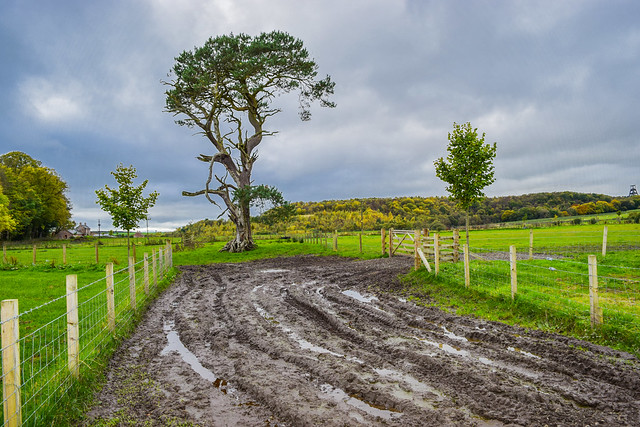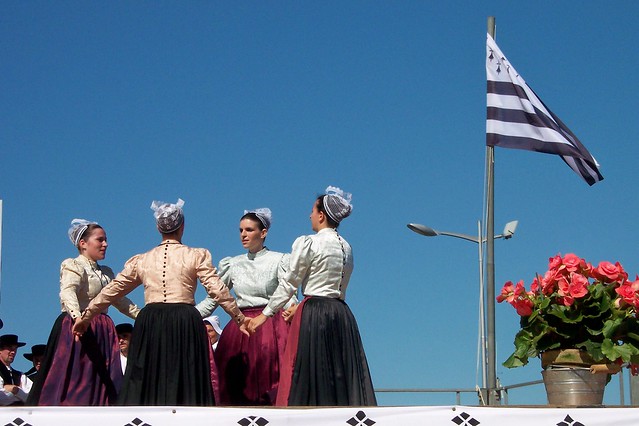Words for duty, debt, law, rule and related things in Celtic languages.

Scottish Parliament / Pàrlamaid na h-Alba / Scots Pairlament
Words marked with a * are reconstructions.
| Proto-Celtic | *dligeti = to be entitled to, be obligated to |
|---|---|
| Old Irish (Goídelc) | dligid = to deserve, merit, be entitled to |
| Middle Irish (Gaoidhealg) | dligid, dleagaid = to be entitled to, have a right to, be owed, deserve, merit |
| Irish (Gaeilge) | dligh [dʲlʲɪɟ/dʲlʲiː] = to be entitled to, have a right to, deserve, merit, be incumbent on, be liable to, ought to |
| Scottish Gaelic (Gàidhlig) | dligh [dli] = owe, be due dleas [dles] = deserve, merit, due dleasach [dlesəx] = deserving, meriting dleasadh [dlesəɣ] = (act of) deserving, meriting dleasannas [dlesən̪ˠəs] = obligation, duty dleasanta [dlesən̪ˠdə] = deserving, meriting dleasnach [dlesn̪ˠəx] = dutiful dleastanas [dlesdənəs] = obligation, duty |
| Manx (Gaelg) | toill = to deserve, will toillchin = to deserve, earn, merit, reward; derserving, worthy toillchinagh = deserving, meritorious toillchinys = desert, merit toillchyn = to deserve, merit toilliu = to deserve, earn, merit; deserving, worthy |
| Proto-Brythonic | *dɨlɣɨd = ? |
| Middle Welsh (Kymraec) | deleu, dyly, dylu = to be obliged to, ought, be indebted, behove, owe, be in debt, have a right to, claim, merit, deserve, posses, claim from |
| Welsh (Cymraeg) | dylu [ˈklɛðɨ̞v/ˈkleːðɪv] = to be obliged to, ought, be indebted, behove, owe, be in debt, have a right to, claim, merit, deserve, posses, claim from (other forms include: dylaf, dylÿaf, dlyaf, dylÿu, dlyu, dleu, deleu) |
| Middle Cornish (Cernewec) | dely, dylly = to owe, deserve |
| Cornish (Kernewek) | tyli = to owe, pay, reward tylva = checkout, till |
| Middle Breton (Brezonec) | dleout = must |
| Breton (Brezhoneg) | dleout [ˈdleː.ut] = to have to, must, owe dleañ = to have to, must, owe; judicious |
Etymology: from Proto-Indo-European *dʰlégʰ-ti/*dʰl̥gʰ-énti, from *dʰlegʰ- (to beat, strike) [source]. Words from the same PIE roots possibly include dolog (thing, object, affair, business, task, fate) in Hungarian, dług (debt, account payable) in Polish, долг (dolg – debt, duty, obligation) in Russian, and dlh (debt) in Slovak [source].
| Proto-Celtic | *dligetom = duty, debt |
|---|---|
| Old Irish (Goídelc) | dliged, dligeth [ˈdʲlʲiɣʲeð] = law, principle, rule, theory, dictum dlecht = lawful dligthech = lawful, right |
| Middle Irish (Gaoidhealg) | dliged, dligeth, dleged = law, principle, rule, norm, dictum, reason, argument, reckoning, nature, condition, kind, manner dligedach = lawful dligemnas = lawful right dligthech = regular, right, lawful, law-abiding, rational, reasonable, just, righteous dligthe(m)nach, dligtheanuigh = lawgiver dligtheoir = lawyer, man of law |
| Irish (Gaeilge) | dlí [dʲlʲiː] = law, divine precept, scientific principle, litigation dlíodóir = lawyer dlíodóireacht = practice of law, practising law dlíthí = litigant dlíthíoch = litigious dlíthíocht = litigiousness dlíthiúil = legal, juridicial, lawful, litigious dlíthiúilacht = legality, lawfulness dleacht = due, lawful right, royalty, patent dleathach = lawful, legal, valud, genuine, just, proper dleathaíocht = legality, justice, propriety |
| Scottish Gaelic (Gàidhlig) | dlighe [dli.ə] = ordinance (in law), due dligheach [dli.əx] = lawful, legitimatem rightful, right, due, dutiful, just dligheachas [dli.əxəs] = lawful right, jurisdiction, validity dligheachd [dli.əxg] = legality, royalty (payment) dligheadh [dli.əɣ] = (act of) owing, being due, stipend dlighear [dli.ər] = lawyer, creditor dligheil [dli.al] = legitimate, lawful, rightful |
| Proto-Brythonic | *dlɨɣed = (?) |
| Middle Welsh (Kymraec) | delehet, deleed, dylyet, dlyet, dylet = debt, due, claim, right, demand, oblitation, duty dylyedawc, dylyedauc, dylyedaỽc dyledawg = noble, privileged, dignified, illustrious, rightful dyledogaeth, dlyedogaeth = nobility, lordship, proprietorship dylyedus, dyledus = due, proper, meet, lawful, worthy, just, necessary, requisite, owing, in debt, indebted dyledwr = debtor, defaulter, trespasser |
| Welsh (Cymraeg) | dyled [ˈdəlɛd] = debt, due, claim, right, demand, oblitation, duty, service, heritage, estate, worth, privilege, sins, transgressions, trespasses [also written dylêd, dled, dylyed, dlyed] dyled(i)ach = trifling debts, dribbling debts dyledu = to owe, be due, debit, make due dyledog = indebted, in debt, due, noble, privileged, dignified, illustrious, debtor dyl(y)edus = due, proper, meet, lawful, worthy, just, necessary, requisite, owing, in debt, indebted, noble, privileged, dignified, reasonable, sensible, understanding dyledwr = debtor, defaulter, trespasser |
| Middle Breton (Brezonec) | dle = due, owing dleat = moral duty, tax |
| Breton (Brezhoneg) | dle = due, owing, debt dlead = moral duty, tax dleatour = debtor dleapl = liable dleoniezh = ethics d(e)leour = debtor, creditor |
Etymology: from Proto-Celtic *dligeti (to owe, be indebted to) – see above [source].
| Proto-Celtic | *ká(g)ni- = tribute, law |
|---|---|
| Old Irish (Goídelc) | cáin [kaːnʲ] = law, regulation, rule, fine, tax, tribute, legal due |
| Middle Irish (Gaoidhealg) | cáin, cain = law, regulation, rule, fine, tax, tribute |
| Irish (Gaeilge) | cáin [kɑːnʲ/kaːnʲ] = law, regulation, rule, due, tribute, fine, penalty, impost, tax cáinaisnéis = budget cáinaisnéiseach = budgetary |
| Scottish Gaelic (Gàidhlig) | càin [kaːn̪ʲ] = duty, tariff, tribute, fine; body of laws (archaic) càin-aisneis = budget càineach, càinear, càiniche = tax/excise collector, tax gatherer càineachadh [kaːn̪ʲəxəɣ] = (act of) imposing a tax |
Etymology: possibly from Proto-Indo-European *keh₂/₃ǵ-n- [source]. Words from the same root may include kázeň (discipline) in Czech, kaźń (execution, torture, torment) in Polish, and kázeň (sermon, discipline) in Slovak [source].
| Old Irish (Goídelc) | cís = tax, tribute |
|---|---|
| Middle Irish (Gaoidhealg) | cís, cis, cíos = tax, tribute, cess, rent císach = receiving or exacting tribute císaige = tributary, rent-payer císugud = paying tribute |
| Irish (Gaeilge) | cíos [ciːsˠ] = rent, price; tax tribute (historical) cíosach = rent-paying, tributary cíosaí = rent-payer cíosaigh = to rent, pay rent for, compensate for cíoscháin = tribute cíoscheannach = hire-purchase |
| Scottish Gaelic (Gàidhlig) | cìos [kʲiəs] = tribute, tax cìs [kʲiːʃ] = tax, levy cìsachadh [kʲiːʃəxəɣ] = taxing, taxation cìsachas [kʲiːʃəxəs] = taxation cìseadair [kʲiːʃədɪrʲ] = exciseman cìsear [kʲiːʃər] = tax/excise collector, tax gatherer |
| Manx (Gaelg) | keesh = custom, duty, tax, toll, tribute, contribution keeshagh = assessable, taxable, tributary keeshyn = taxation, taxes, tribute, dues |
Etymology: from Latin cēnsus (census, register, rich gifts, presents, wealth), from cēnseō from Proto-Italic *kensēō (to give an opinion), from *kensējō, from Proto-Indo-European *ḱenséh₁-ye-ti, from *ḱens- (to announce, proclaim, put in order). Words from the same roots may include census in English, censo (census, wealth) in Italian, Zins (interest, tribute) in German, and czynsz (rent) in Polish [source].
| Proto-Celtic | *rextus = rule, law *kom-rextus = law (?) |
|---|---|
| Celtiberian | Retukeno = personal name |
| Gaulish | Rextugenos = personal name |
| Old Irish (Goídelc) | recht, rect [r͈ʲext] = law rechtach = law-giving rechtaid = lawgiver rechtaide = legal rechtaigid = to legislate rechtaire = steward rechtas = stewardship rechtge = government rechtmar = lawful |
| Middle Irish (Gaoidhealg) | recht, rect, reacht = law, authority, rule, right, lawfulness rechtach = just, equitable, law-giving rechtaid, rechtaidh = judge, lawgiver rechtaide = legal, pertaining to the law, lawful rechtaigid = to legislate rechtaire, rechtorairge = steward, baliff, administrator, judge (?) rechtas, rechtus, rechtcus = authority, administration, stewardship rechtge, rechtga = government, authority, rule, regin rechtmar = lawful, legitimate |
| Irish (Gaeilge) | reacht [ɾˠaxt̪ˠ] = law, statute, accepted rule reachtach = law-giving, legislative reachtaigh = to legislate, enact, decree reachtaíocht = legislation reachtaire = controller, administrator, steward, Rector, auditor, master of ceremonies reachtas = administration, stewardship reachtmhar = lawful, legitimate reachtóir = lawgiver, legislator reachtúil = statutory, statute |
| Scottish Gaelic (Gàidhlig) | reachd [r̪ˠɛxg] = decree, statue, edict reachdach [r̪ˠɛxgəx] = compulsory reachdachadh [r̪ˠɛxgəxəɣ] = (act of) legislating, law-making, legislature reachdadair [r̪ˠɛxgədɪrʲ] = lawmaker, legislator reachdadaireachd [r̪ˠɛxgədɪrʲəxg] = legislature reachdail [r̪ˠɛxgdal] = legislative, statutory reachdas [r̪ˠɛxgəs] = legislation |
| Proto-Brythonic | *rreiθ = rule, law *kuβ̃reiθ = law (?) |
| Middle Welsh (Kymraec) | reyth, reith, rhaith = law, rule, decree, rightness, justice, right (to smth), recompense, atonement, judgement, verdict cyfreith, kiureith, kefreyth [ˈkəvrai̯θ] = law, rule, decree, rightness, justice, right (to smth), recompense, atonement, judgement, verdict |
| Welsh (Cymraeg) | rhaith [r̥ai̯θ] = law, rule, decree, rightness, justice, right (to smth), recompense, atonement, judgement, verdict rhaithgor = jury cyfraith [ˈkəvrai̯θ] = law, legislation, statute, custom, usage, jurisprudence |
| Cornish (Kernewek) | reyth = regular, right, religious law reythennek, reythednek = statutory reythen = statute reythe = to authorise, codify, empower, entitle, qualify reythes = authorised, empowered, enacted, entitled, qualified reythyans = enactment, jurispridence, lawmaking, legislation |
| Old Breton (Brethonoc) | reith = law |
| Middle Breton (Brezonec) | rez, reiz = law rezder = law |
| Breton (Brezhoneg) | reizh = right, just, correct, order, normal reizhad = regular reizhadenn = rectification, corrected reizhadur = adjustment reizhan = to correct, adapt, regular, initiate reizhded = correctness, rectitude, normality reizhder = regularity reizhegezh = legitimacy reizhek = legitimate reizhekaat = to legitimize reizhennan = to regulate reizhus = legal |
Etymology: from Proto-Indo-European *h₃reǵ- (to straighten, to righten) [source]. Words from the same PIE root include rail, rank, realm, regime, rule and regulation in English, rę́žti (to stretch) in Lithuanian, règle (rule, regulation) in French, and regla (rule, ruler) in Spanish [source].
| Old Irish (Goídelc) | ríagal, ríagul = rule |
|---|---|
| Middle Irish (Gaoidhealg) | ríagal, riagoil, riaguil = rule, authority |
| Irish (Gaeilge) | riail [ɾˠiəlʲ] = rule, regulation, principle, sway, authority, order rialachán = regulation rialúchán = regulation, control |
| Scottish Gaelic (Gàidhlig) | riaghail [r̪ˠiə.al] = rule, govern, administer riaghailt [r̪ˠiə.əldʲ] = rule, regulation, government riaghailteach [r̪ˠiə.əl̪ˠdʲəx] = regular, according to rule, orderly riaghailteachadh [r̪ˠiə.aldʲəxəɣ] = (act of) formulating, regulating, adjusting, adjustment riaghailteachas [r̪ˠiə.aldʲəxəs] = regulatory riaghailteachd = regularity, moderation riaghailtear [r̪ˠiə.aldʲər] = regulator riaghailtearachd [r̪ˠiə.aldʲərəxg] = administration riaghal [r̪ˠiə.əl̪ˠ] = rule |
| Manx (Gaelg) | reill = code, dominion, governance, policy, principle, reign; to charge, govern, order, regulate, rule reilley = to regulate, reign, rule; ruling reilleyder = governor, regulator, ruler, straight edge reilt = normal, to rule reiltagh = director, ordinal, president, rector, ruler; decisive, ruling, regular reiltys = governance, rule, kingdom, dominion, government |
| Proto-Brythonic | *rreɣol = rule (?) |
| Middle Welsh (Kymraec) | ryol, reol, rhwol = rule, regulation, procedure, order, custom, pattern, government, dominion rhyolaeth, reolaeth = rule, control, management, authority, discipline rwyoli, reoli, ryoli, rhywoli = to rule, control, direct, govern roliad = rule, control, government ryolus, reolus, rheolus, rreolys = regular, orderly, disciplined, moderate, consant |
| Welsh (Cymraeg) | rheol [ˈr̥eː.ɔl] = rule, regulation, procedure, order, custom, pattern, government, dominion rheol(i)aeth = rule, control, management, authority, discipline rheoli = to rule, control, direct, govern rheolaidd = regular, regulated, orderly rheoliad = rule, control, government rheolus = regular, orderly, disciplined, moderate, consant |
| Middle Cornish (Cernewec) | reol, rowl, rovle = rule, government rowler = ruler, governor |
| Cornish (Kernewek) | rewl, rowl = regulation, rule rewlya, rowlya = to control, regulate, rule rewlyades, rowlyades = ruler (f) rewlyas, rowlyas = ruler (m) rewlys = regular |
| Old Breton (Brethonoc) | regul = rule, regulation |
| Middle Breton (Brezonec) | reul, reol, reoll = rule, regulation reulenn = rule reulennaff = to regulate |
| Breton (Brezhoneg) | reol = rule, principle, regime reolennadur = regulation reolennan = to regulate reoliadur = regulation reoliata = to regulate reoliek = regular reolius = regulatory |
Etymology: from Latin rēgula (rule, bar, ruler), from regō (I rule, govern, direct, guide, steer, control), from Proto-Italic *regō, from Proto-Indo-European *h₃réǵeti (to be straightening, to be setting upright), from *h₃reǵ- (to straighten, to righten) – see above [source].
| Scottish Gaelic (Gàidhlig) | lagh [l̪ˠɤɣ] = law laghachd [l̪ˠɤɣəxg] = legislation laghadh [l̪ˠɤɣəɣ] = legalising, legalisation laghaiche [l̪ˠɤɣɪçə] = lawyer, solicitor laghaichte [l̪ˠɤɣɪçdʲə] = legalised laghail [l̪ˠɤɣal] = legal, lawful, litigious, argumentative laghaileachd [l̪ˠɤɣaləxg] = lawfulness, legality |
|---|---|
| Manx (Gaelg) | leigh = enactment, law, respect leighagh = legal, litigious leighder = lawyer, advocate, attorney, barrister, council leighoil = lawful, legal, legislative, legitimate |
Etymology: from English law, or Middle English lawe/laȝe (law, regulation, morality), or Old English lagu (law, rule, right), all of which come from Old Norse lǫg (law, rule, right), from Proto-Germanic *lagą (situation, law, a settled amount), from Proto-Indo-European *legʰ- (to lie [down]). The English words lie and lay come from the same roots [source].
Sources: Wiktionary, Etymological Dictionary Of Proto Celtic, In Dúil Bélrai English – Old Irish glossary, eDIL – Electronic Dictionary of the Irish Language, Teanglann.ie, Am Faclair Beag, An etymological dictionary of the Gaelic language, Fockleyreen: Manx – English Dictionary, Online Manx Dictionary, Gaelg Corpus, Geiriadur Prifysgol Cymru, Lexicon cornu-britannicum : a dictionary of the ancient Celtic language of Cornwall, Gerlyver Kernewek, Devri : Le dictionaire diachronique du breton, Dictionnaires bilingues de Francis Favereau / Edition Skol Vreizh, TermOfis










